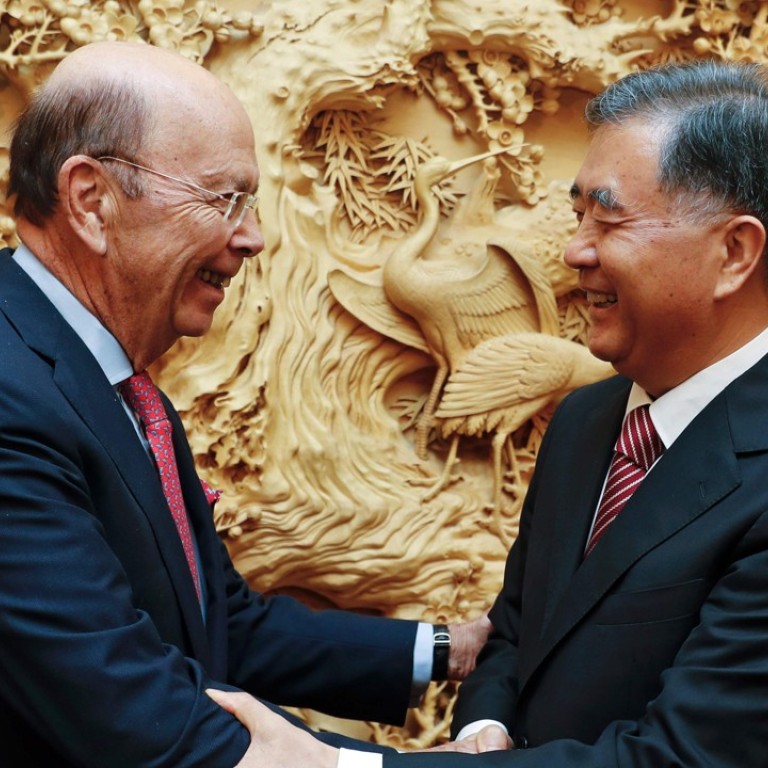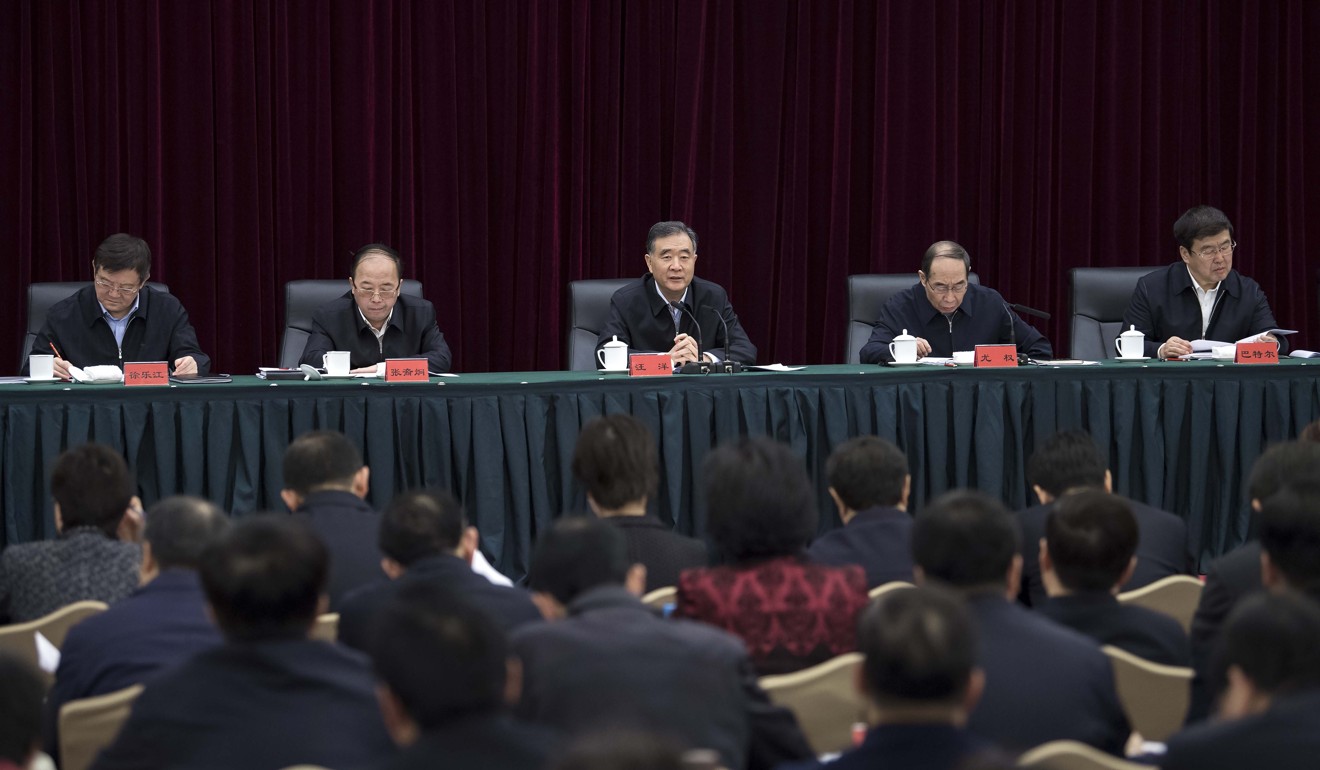
China’s go-to man on US trade to take on the Communist Party’s top job on Taiwan and Tibet
Vice-Premier Wang Yang’s appearance at key party gathering comes as China’s activities overseas come under greater scrutiny
China's point man on Sino-US trade ties is set to move on to be the country’s top political adviser and take direct charge of the Communist Party’s public engagement campaigns.
The appearance of Wang Yang, 63, at a national party gathering on engaging non-party sections of society is the latest sign that the former Chinese representative in high-level economic talks with the United States will take up the outreach portfolio.
It also comes as China’s activities abroad are under greater scrutiny from the West.
Just months after he was elevated to the seven-man party inner sanctum – the Politburo Standing Committee – Wang hosted a meeting of chiefs of the local branches of the United Front Work Department on Tuesday, state media reported.
The party’s united front system is responsible for engaging China’s non-party elites at home and abroad and is under the leadership of the Chinese People’s Political Consultative Conference (CPPCC), the country’s top political advisory body.
The annual national gathering of the department’s chiefs is usually chaired by the head of the CPPCC, a role that Wang’s appearance on Tuesday suggests he could assume at the government reshuffle in March, succeeding the retiring chairman Yu Zhengsheng.
The head of the CPPCC is often given the party’s top role for affairs related to Taiwan, Tibet, religious communities and ethnic minorities. Sometimes the portfolio also extends to a senior role in Hong Kong and Xinjiang affairs.
For now, Wang remains a vice-premier on the State Council, China’s cabinet, with his five-year term ending when the legislature – the National People’s Congress – meets in March.
He has been in the position since 2013, becoming one of the most senior points of contact in China with the US treasury and commerce secretaries. Wang and the US treasury secretary used to co-chair the annual top Sino-US economic meetings.
Wang is perhaps best known outside the country for the unlikely image of a senior Chinese politician cracking jokes at the US-China Strategic and Economic Dialogue in Washington in 2013.
His experience with the West could be useful in tackling some of the controversy stirred up by China’s overseas activities. In Australia, a senator quit over alleged links to China and Prime Minister Malcolm Turnbull said there were disturbing reports about Chinese influence in the country.
The University of Texas at Austin has also reportedly rejected funding from the China-United States Exchange Foundation – headed by Hong Kong’s first chief executive, Tung Chee-hwa – for its China Public Policy Centre programmes, student exchanges and other initiatives, amid concerns about Tung’s role as vice-chairman of the CPPCC.

Wang’s successor in his role at the dialogue and in contact with the two US departments is expected to be revealed after the line-up of the new State Council – including the new vice-premiers – makes its debut in March.
But Beijing-based political commentator Zhang Lifan said past practice suggested the role would be filled by one of the three vice-premiers on the Politburo but not its Standing Committee, putting Liu He and Hu Chunhuaamong the front runners.
“I personally believe Hu is the most suitable candidate, but Liu is supposed to be Xi’s favourite,” Zhang said.
Like Wang, Hu spent five years governing the southern industrial powerhouse of Guangdong. But Liu has played the key role of Xi’s economic adviser and has been in Xi’s entourage in most meetings with US leaders in the past five years. Beijing announced this week that Liu would speak at the World Economic Forum in Davos, Switzerland.
Zhang said Wang, who is likely to take over a senior role in Tibet and Taiwan affairs with his expected chairmanship of the CPPCC, had proved able in managing social conflict.
“He did calm down the situation in Wukan village and was fairly good with public relations,” he said. “But Wang’s space would be limited under Xi’s exceptional dominance.”
Mass protests against corruption broke out in the village of Wukan in Guangdong province in 2011 after a land grab by local officials. After a month of violent clashes between police and the villagers, the Guangdong authorities, then led by Wang, brokered a peace with the protesters, winning Wang a reputation as a liberal-minded cadre.

